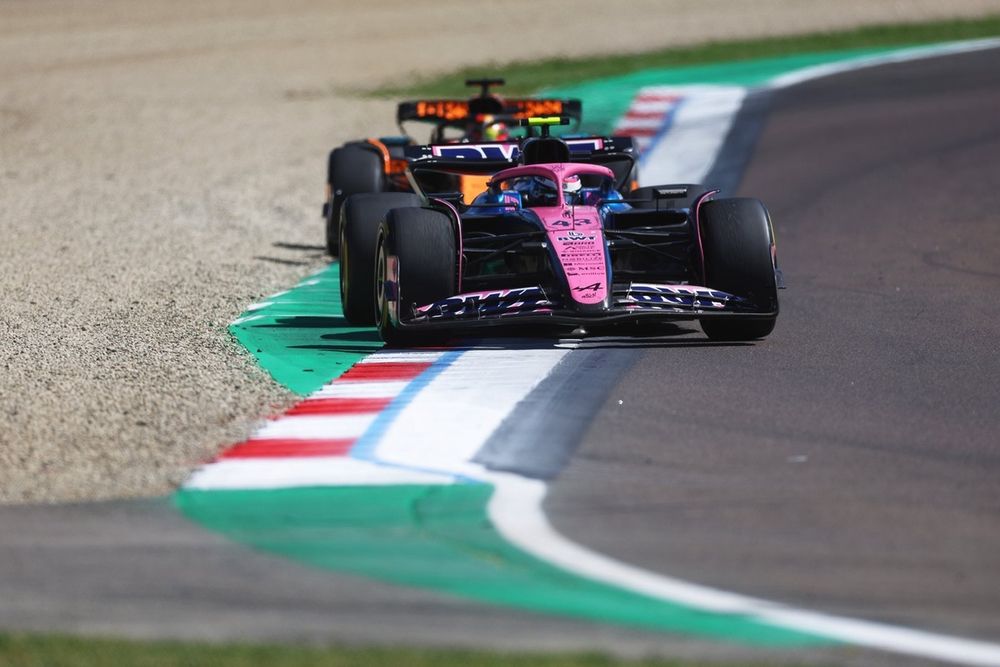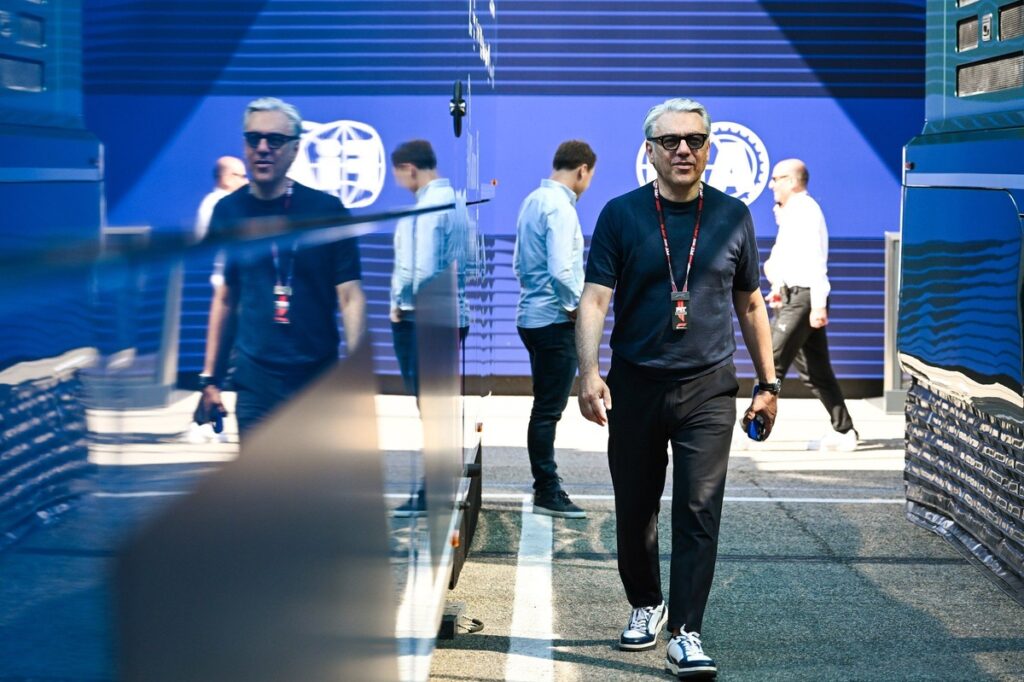When Luca de Meo became Renault’s CEO in the summer of 2020, the group had just posted a €7.3billion loss and was on the verge of collapse as the world economy shuddered to a halt during the COVID-19 pandemic. On his way to turning that around to a €4.26billion operating profit in the last set of annual results, de Meo set in motion what he called a ‘Renaulution’, introducing exciting new models and reinvigorating the moribund Alpine sub-brand.
The question now is what happens to the children of the Renaulution as De Meo exits the car industry entirely to become CEO of Kering, the French luxury brand group which includes Gucci among others.
What set De Meo apart – from his predecessors at Renault as well as many other car company execs – was his ability to blend passion for great product with financial savvy. He could wrangle the contents of a spreadsheet like any other bean counter but also made it clear to all below him that their mission was to create “GFC” (in private, “great fucking cars”).
Under previous CEO Carlos Ghosn’s leadership the first priority was cost-cutting, and the product line-up drifted into insipidity. The bizarre episode of Ghosn’s arrest in Japan and subsequent escape in a musical instrument case precipitated a period of turmoil with interim CEOs Thierry Bollore and Clotilde Delbos having to navigate civil war in the boardroom.
De Meo had previously worked for Fiat and the Volkswagen Group, and is credited with the rebirth of the Fiat 500. Among his first acts at Renault was to un-cancel a proposal to reinvent the seminal 5 supermini as an electric car, and fast-track it to production.
His passion for sporting sub-brands was evident in his creation of Abarth (subsequently left to go to seed by Stellantis) and Cupra, so it was logical to expect him to become a champion of Alpine, which had nothing planned after the A110 model. But while Renault’s road car line-up is now vastly more appealing than it was five years ago, De Meo’s handling of the Alpine F1 team – which was rebranded as such at his behest – has been rather less assured.
As the team became Alpine in 2021, De Meo dispensed with the services of long-time team boss Cyril Abiteboul. In theory the Enstone outfit was to be run – trackside at least – by Davide Brivio, a star recruit from the MotoGP world. But former McLaren aerodynamicist and FIA technical man Marcin Budkowski, who had recently joined as executive technical director, also appeared to be in the mix.
Laurent Rossi, CEO, Alpine F1 , Esteban Ocon, Alpine F1, 1st position, and Lewis Hamilton, Mercedes, 3rd position, on the podium
Photo by: Jerry Andre / Motorsport Images
To add to the confusion of who was actually in charge, Alpine Cars CEO Laurent Rossi, another De Meo appointee and an individual who appeared to have no experience in the industry apart from a clutch of MBAs, also became a regular at grands prix. His reign is notable for the fact that he elbowed his way onto the podium to collect the trophy for winning constructor after the 2021 Hungarian Grand Prix, and that he alienated key consultant Alain Prost to the point that the four-time champion walked away before the end of the year.
Whatever transpired between them, Prost was still seething two years later when Rossi himself was ousted. In a searing interview in L’Equipe, Prost declared his nemesis a perfect example of the ‘Dunning-Kruger effect’, the inverse relationship between a person’s intellectual capacity and their estimation of their own abilities.
In the interim, Brivio faded sideways into a series of non-jobs before quietly returning to the two-wheeled world.
The hirings and firings have proceeded apace ever since. When Flavio Briatore was brought in as ‘executive advisor’ last year, it was seen by industry insiders as essentially De Meo’s last roll of the dice with the beleaguered F1 team. Briatore’s mandate was to crack as many heads as need be to turn the team around, or else it would be sold: no measure was off the table.
To that end, a sacred cow was led to the abattoir: Renault Sport’s engine department in Viry-Chatillon, pioneer of turbocharging and home of many a championship-winning V10, was told it was surplus to requirements and that Alpine would become a Mercedes customer in 2026. Naturally there was much wailing and gnashing of teeth, but it was done anyway.
Communication was sloppily handled. In a now-famous LinkedIn post, a former employee vented their spleen in De Meo’s direction, accusing him of cowardice for not informing the Viry staff in person and delegating the task to a functionary instead.

Flavio Briatore, Executive Advisor, Alpine
Photo by: Sam Bagnall / Motorsport Images via Getty Images
De Meo was unapologetic, pointing out in an interview last year that there is no financial incentive for building the engine as well as the chassis.
“The FIA rewarding scheme [distribution of monies under the Concorde Agreement] is only given to the chassis results so when McLaren or Aston Martin win, they get the financial compensation in full although they use Mercedes-Benz engines,” he said.
“At Renault, we have to pay an additional €250 million for the engines. I run a listed company, and I have been doing that for a decade – I have to take rational decisions every day.
“The media reacted negatively to the decision of using Mercedes-Benz engines, but the business case would not work otherwise: the annual cost will be €20 million euro for the engines which compares to €250 million. If that was your money, what would you do?
“I’m a strong believer in the value of brands, and it was not an easy decision to take, but it was a vital one. And when Alpine scores regular podium finishes and wins, all the negative noise will wash away.”
That moment seems as far away as ever.

Oscar Piastri, McLaren, Franco Colapinto, Alpine
Photo by: Peter Fox / Getty Images
Automotive industry insiders see De Meo’s departure not only as a classic case of “new challenges” – Renault Group’s current financial situation is healthy, raising De Meo’s market value and making him very attractive to Kering, whose Gucci brand’s sales have gone off a cliff – but also a portent of trouble to come in the car world. De Meo has long pursued a policy of allying with Chinese companies, including Geely, on powertrain technology and means of fast-tracking cars to production, but recently he has been talking up the threat to the European car industry of cheap (state-subsidised) cars flooding the market.
He had also reversed his position on the EU imposing tariffs on Chinese EV imports.
You could read this, then, as a case of getting out while the going is good. Also, the luxury goods industry is well known to be somewhat complacent, sitting on large profit margins, so there is ample low-hanging fruit for an executive well versed in cost-cutting.
Naturally De Meo’s departure has cast further doubt on the future of the Alpine F1 project.
“In Formula 1, stability comes from vision and execution,” Briatore said in Montreal. “We have a plan. Luca supported that plan. His departure won’t stop us.”
Easy to say that – but in the corporate world, as in the African savannah, a lion assuming the leadership of a pride will kill his predecessor’s cubs.

Luca de Meo, CEO of the Renault Group talks with Flavio Briatore, Executive Advisor of Alpine F1
Photo by: Sam Bagnall / Motorsport Images via Getty Images
That puts Briatore in the immediate firing line. As well as being a polarising figure in F1 anyway, owing to his role in the 2008 Singapore GP race-fixing scandal, Briatore is not a full-time employee but a contractor. It’s said that his contract also entitles him to ‘wet his beak’ in commercial deals, an arrangement which has been noisily scrutinised in the French media.
The Renault Group says an “already defined succession plan” for a new CEO exists. Industry insiders say the truth of this claim will be revealed by the choice of boss: Dacia’s Denis Le Vot would be the succession candidate, but there is also talk of an approach to Stellantis COO Maxime Picat.
A De Meo acolyte would certainly be Alpine’s preferred choice. An outsider would be a troubling harbinger of yet more change and uncertainty for ‘Team Enstone’.
In this article
Stuart Codling
Formula 1
Alpine
Be the first to know and subscribe for real-time news email updates on these topics
Subscribe to news alerts
Read the full article here

